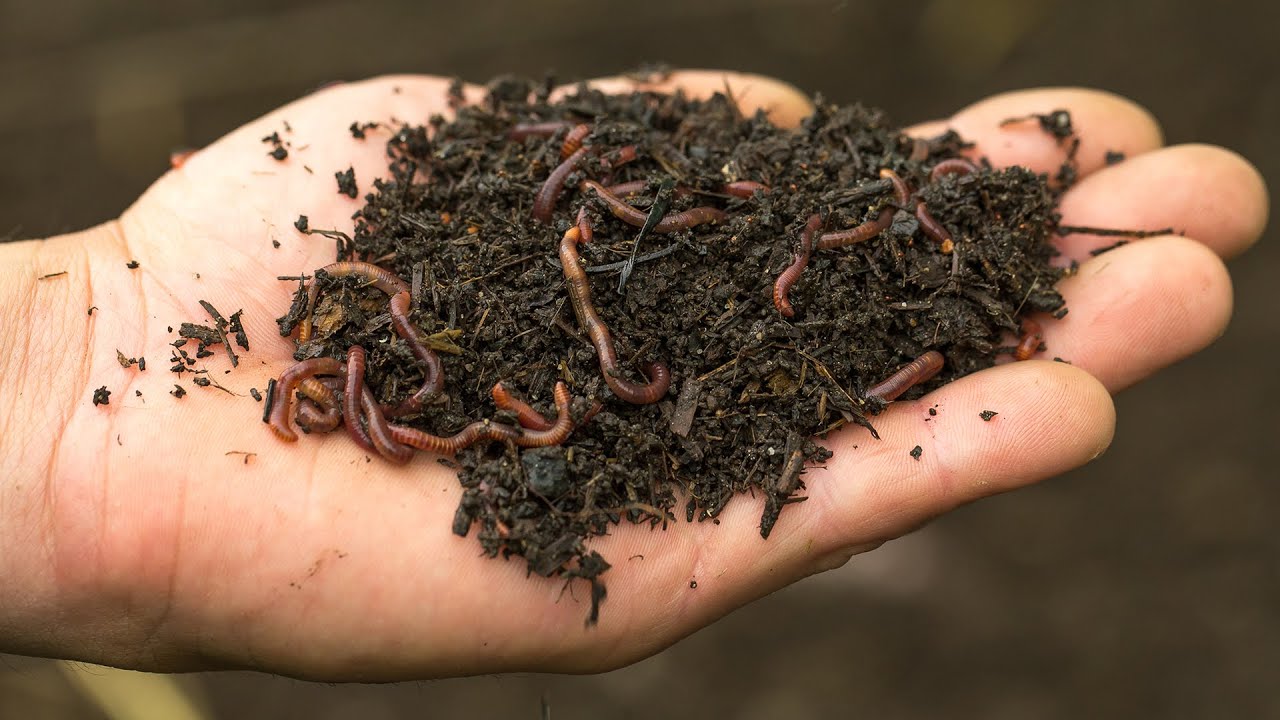Worm composting, or vermicomposting, uses worms to recycle organic and natural matter into high-quality compost. The worms will eat your food scraps, turning it into compost as it passes through them. After the worms have finished digesting the scraps, they poop out what are known as worm castings or vermicast. These worm castings make excellent organic and natural fertilizer for your garden. Vermicomposting, also called worm composting, is the process of having worms eat natural material, such as vegetable and fruit peels, and then break it down through digestion. After the scraps move across their system, they excrete it in what’s known as worm castings. Before you get grossed out, know that those castings are rich, nutrient-dense materials that can turn soil into a paradise for plants. (It’s often known as black gold!) To have the process started, all you need to do is fill the worm’s bin with a variety of food scraps (green and brown) and “bedding” such as shredded paper, cardboard, straw, hay, dry leaves, dirt, or wood chips.
Benefits of vermicomposting:
- It’s sustainable.
Creating vermicompost is a way to repurpose organic and natural waste rather than tossing it out. Food waste currently accocunts for almost 25% of landfills in the U.S. (where it emits harmful greenhouse gases), so finding other uses for this is essential.
- It makes great soil.
By returning food and plant scraps to the earth, you’re developing a closed-loop system of organic nutrients, and the resulting natural fertilizer is super beneficial for plants and microorganisms.
- It’s a chemical-free fertilizer.
Chemical fertilizers or pesticides can be detrimental to soil health and wildlife. Worm castings area all natural way to revitalize areas where soil has been overused or lost nutrients.
Benefits of Worm Composter
Worm composting is fast becoming just as popular as standard composting. Especially with young city dwellers because of how easy and efficient it is. The benefits associated with vermiculture are:
- Vermicomposting doesn’t smell – the worms are quick personnel and process the waste before it has a chance to get started on stinking
- You can do it in small indoor spaces, including apartments and balconies – because it’s an odorless system and doesn’t create chaos, there’s nothing to stop you from setting up a worm bin inside. There are other ways to compost indoors that don’t involve worms, but vermiculture is your best option for anyone
- There’s not a lot of work involved – the worms do most of the task for you! The one jobs involved are feeding the worms, which should only take around half an hour every week, and harvesting the worm castings every 3-6 months. Harvesting the compost may take anywhere between one hour to half a day, with regards to the method you utilize
- Worm compost bins are cheap to set up and keep maintaining – worm farms begin with around $30 for a homemade one, up to about $130 for a high-end commercial option. Following the initial create cost, the thing you may need to maintain the bin is bedding material. Bedding can be as simple as some shredded paper
- Worms will make compost throughout the year – although there are tricks you can use to heat compost up in the wintertime, most composting methods come to a virtual standstill as the weather gets colder. Not worm bins. So long as you keep your worms warm enough, they’ll develop a continuous stream of compost throughout the year
Check out some of the worm composting benefits below…
- It reduces valuable organic and natural materials being dumped and left to rot anaerobically on landfill sites, possibly contaminating fresh water and producing greenhouse gases
- It requires very little space
- It does not produce bad smells.
- It does not produce greenhouse gases
- It can be done outdoors and indoors.
- It can process organic waste in a short time
- It saves you money on fertilizers, soil conditioners and pesticides
- It produces Worm Tea (liquid worm castings) which is both an all natural pest repellent and organic and natural fertilizer
- It produces Worm Castings that are amongst the best organic fertilizers known to man
- It produces a surplus of earthworms or compost worms which can improve your garden’s soil in lots of ways
- It produces a continues supply of big fat fishing worms
- It takes less than 10 minutes of maintenance weekly
- It can be easily turned into a profitable worm composting business.
